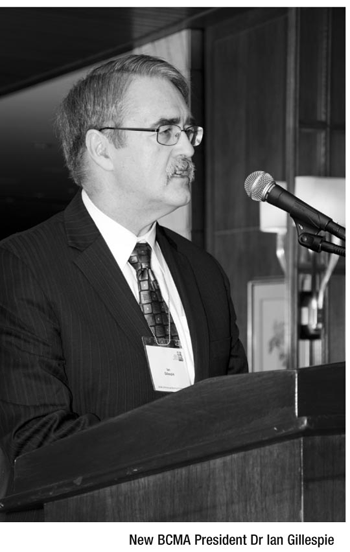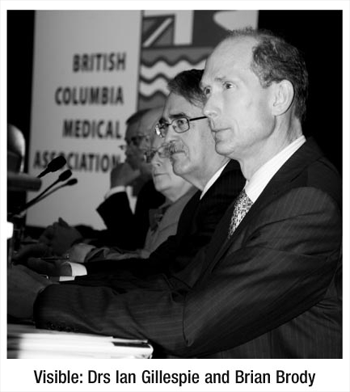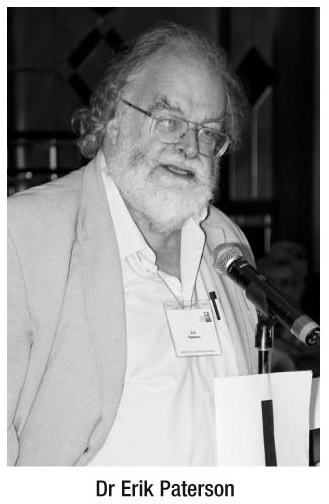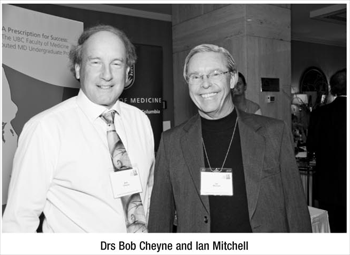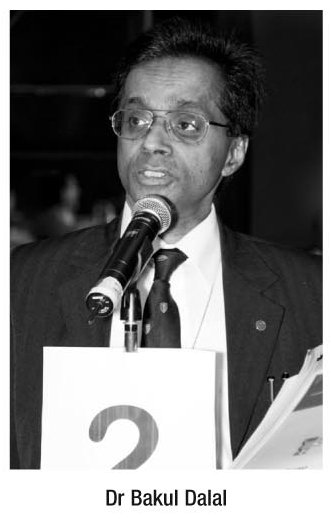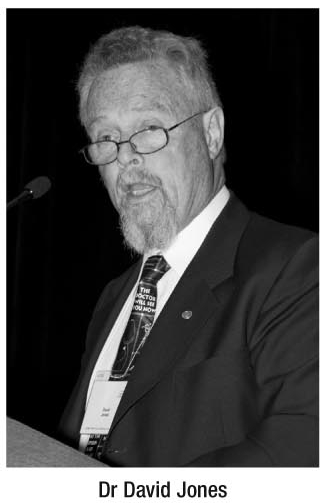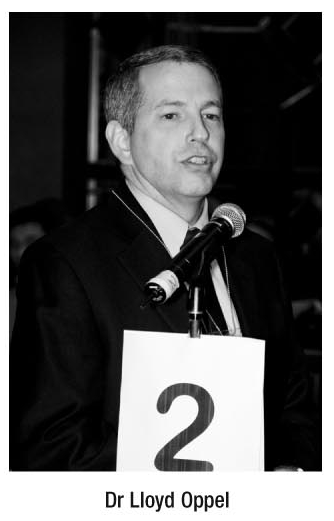Special Report: 2010 BCMA Annual Meeting
This year’s BCMA Annual Meeting and Convention was held at the beautiful Four Seasons Hotel in downtown Vancouver. The meeting rooms, food, staff, and service were all excellent, providing a first-rate venue for the proceedings.
2010/2011 BCMA elected officers
Dr Ian Gillespie, President
Dr Brian Brodie, Past President
Dr Nasir Jetha, President Elect
Dr Shelley Ross, Chair, General Assembly
Dr William Cunningham, Honorary Secretary Treasurer
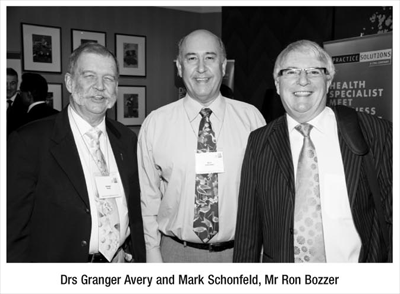
Please see below for more photos of the 2010 AGM.
This year’s BCMA Annual Meeting and Convention was held at the beautiful Four Seasons Hotel in downtown Vancouver. The meeting rooms, food, staff, and service were all excellent, providing a first-rate venue for the proceedings.
Dr Granger Avery was elected chair of the AGM and conducted the meeting with an even hand. A Resolutions Committee was struck, composed of Drs Jim Lane, Marshall Dahl, and Alan Ruddiman, but they were underemployed given the paucity of resolutions coming from the floor.
Attendance at the meeting, while not record setting, was quite good when compared with other years. At one point Dr Erik Paterson from Creston mentioned the perennial issue of low attendance at these meetings, stating that he was unconvinced that this was a sign of member satisfaction.
Other members spoke up, pointing out that low attendance at AGMs is the norm for similar organizations. It may be that, given the many opportunities for input that people now have (phone, e-mail, regular surveys, elections), the AGM as we know it has become a dinosaur on the brink of extinction.
The BCMA is obligated to continue to hold AGMs, but unfortunately there seems to be little other incentive—other than the social aspect—for members to attend, especially on a sunny Saturday away from loved ones.
In concluding his final president’s report, Dr Brian Brodie said he was honored and proud to have been president of an association for the noble profession of medicine. He received a standing ovation from the assembly, an unusual gesture at a BCMA AGM.
The standing-O, however, appeared to be the order of the day, as three more were to follow. At the conclusion of his report on negotiations, Dr Brad Fritz mentioned that the coming negotiation would be his last. The standing ovation he received appeared to be in recognition of his years of leadership of the committee and the successful negotiations that resulted. Later, after thanking the BCMA for its work and support of clinical faculty, Dr Angus Rae was the recipient of a standing ovation, which was clearly a pleasant surprise to him.
In his report, CEO Dr Mark Schonfeld mentioned an initiative approved by the Board the previous day: vertically integrated clinical forums. In these proposed forums, surgical, medical, clinical diagnostic, and general practice could get together in their respective groups to discuss and solve common problems together, but one unique feature would be that they would not be dealing with negotiation issues.
The concept, which was supported by both the SGP and the SSPS, met with favorable reaction from assembled members. There were a few questions from Drs Ian Courtice, Jim Busser, and Evert Tuyp, but they were generally supportive and encouraging.
Dr Zafar Essak had several questions, some of them relating to the Dr Caroline Wang litigation issue. Dr Wang also spoke to the issue of compensation for her court case. Though these questions and comments took quite a lot of time over the course of the morning, nothing of significance came of them.
Drs David Jones and Shelley Ross of the Audit and Finance Committee reported that the BCMA continues to be in an excellent financial position. Once again, the Committee proposed that there be no dues increase, and that motion was passed with no debate and none opposed.
The mammoth contributions of Dr Don Rix, chair of the committee until his death in 2009, were acknowledged by a moment of silence by those assembled.
Incoming president’s speech highlights
New BCMA President Dr Ian Gillespie practises general adult psychiatry in Victoria and has a special interest in posttraumatic stress disorder, physician health, and medical fitness-to-drive issues.
Dr Gillespie first got involved in medical politics as a resident in Vancouver in the 1970s as part of a group of disgruntled residents who formed what is now known as PAR-BC. He has served on a number of BCMA committees: Physician Health, Council on Health Promotion, the Computer Committee, the Information Technology Committee, and the Emergency Medical Services Committee. He has been on the Board of Directors for 12 years and was the chair of the Board during Dr John B. Anderson’s presidency.
In his wide-ranging lunch-hour speech, Dr Gillespie touched on an initiative to improve the BCMA Board nomination process, on advances made by the Specialist Services Committee, and on the BCMA’s latest policy paper, Partners in Prevention, which is about lifetime prevention plans for patients.
The core of his talk, however, was about one of his obvious passions: health promotion.
“Health promotion is something that’s always been important to our organization, going back to baby car seats and bicycle helmet legislation,” he said. “We were responsible for both of them.
“We’ve had many successes over the years. We lobbied for—and got—a provincial dementia strategy. We influenced stricter air and water quality legislation for the province. We advocated a ban on cell phones while driving. Now, it’s the law.
“And, thanks to the great advocacy work we’ve done recently, British Columbia will be the first jurisdiction in North America to treat problem drinking as a chronic disease. This will include treatment guidelines and funding for screening and intervention for alcohol addiction. This formally acknowledges that alcohol addiction is indeed a disease—it’s a brain disorder, and it matters. This change is because of the good work done by COHP and the Communications team.
“But it’s important to remember that we don’t take on these health promotion initiatives because they make us look good. We take them on because we see the consequences of car crashes, or dementia, or alcohol addiction in our practices every day. We know the physical, emotional, and financial costs of these issues, and we know that many of them can be avoided.
“When we advocate for changes in behaviors, changes in the way we manage health care issues, changes in legislation, we’re having a huge impact on public opinion, and the health of the province. And these things have an impact in our offices. I see it. You see it.
“I told you about introducing the motion about bicycle helmets. And yet we still see people of all ages disregarding the law, riding without a helmet. Why do I get so worked up about this issue? Because I work with people who have brain injuries.
“Most people outside our profession don’t appreciate what can happen when the brain is badly shaken, even if there’s no actual external impact.
Perhaps they understand the consequences of severe concussions in sports, or injuries resulting in permanent physical disabilities or death. But not when it comes to what is referred to as mild traumatic brain injury. It’s true that the majority of people who experience these injuries—about 85% of them—recover uneventfully. For the remaining 15% there can be long term, lingering, and debilitating impacts including loss of executive function, headaches, short-term memory loss—the list goes on.
“If we were to introduce testing at a much earlier stage, when the patient is first brought in for care, we could ensure better treatment for the patients that need it. This is something I’ll be working on during my term.
We have technology that can rapidly screen for the presence of cognitive impairment at the time the patient is brought in to the emergency department. Early identification—in the emergency department—means streaming people into further assessment and rehab when they need it.
“This will be my project during my presidency. I want to start the process of developing a pilot project to introduce earlier and better cognitive screening. I welcome your ideas and participation in this project.”
Dr Gillespie was acknowledged with the fourth standing ovation of the day.
Among the numerous dignitaries at the lunch was BC Health Minister Kevin Falcon, who was invited to speak after Dr Gillespie’s address. Minister Falcon gave an upbeat presentation that acknowledged the numerous problems in our health system, but also emphasized the significant successes the government and BCMA have had working together over the last several years.
The minister detailed three areas he plans to focus on: general practice, reducing sodium in restaurant and packaged food, and increasing the amount of physical activity in the school system. All these goals align with BCMA projects and initiatives, and the minister’s presentation, free of bureaucratese, was well appreciated by the assembly.
Award recipients
Dr David M. Bachop Silver Medal in General Medical Practice
Dr Joyce Wonmi Choi
Dr David M. Bachop Gold Medal for Distinguished Medical Service
Dr Anne Vogel
Dr Cam Coady Award
Dr John O’Brien-Bell
BCMA Excellence in Health Promotion
Individual Award
Dr Edith Blondel-Hill—Youth Wellness Project
Non-Profit Award
Seabird Island Health Centre
Corporate Award
BC Public Service Agency—Quittin’ Time
CMA Honorary Membership Award
Dr David Harder
Dr Roy Karjala
Dr Shaun Peck
Dr Garson (Gary) Romalis
Dr Jean Swenerton
Dr John Turner
Dr Morris van Andel
Dr James Wilson
BCMA Silver Medal of Service
Dr Jack Chritchley
Dr Jakob Meyerhoff
Dr Linda Warren
